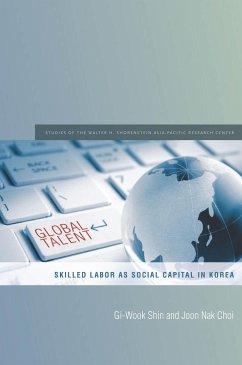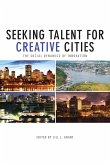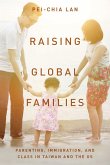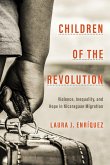- Broschiertes Buch
- Merkliste
- Auf die Merkliste
- Bewerten Bewerten
- Teilen
- Produkt teilen
- Produkterinnerung
- Produkterinnerung
Gi-Wook Shin is Professor of Sociology and Director of the Walter H. Shorenstein Asia-Pacific Research Center at Stanford University.Joon Nak Choi is an Assistant Professor in the Department of Management at The Hong Kong University of Science and Technology.
Andere Kunden interessierten sich auch für
Gi-Wook Shin is Professor of Sociology and Director of the Walter H. Shorenstein Asia-Pacific Research Center at Stanford University.Joon Nak Choi is an Assistant Professor in the Department of Management at The Hong Kong University of Science and Technology.
Hinweis: Dieser Artikel kann nur an eine deutsche Lieferadresse ausgeliefert werden.
Hinweis: Dieser Artikel kann nur an eine deutsche Lieferadresse ausgeliefert werden.
Produktdetails
- Produktdetails
- Verlag: Stanford University Press
- Seitenzahl: 216
- Erscheinungstermin: 18. März 2015
- Englisch
- Abmessung: 228mm x 152mm x 22mm
- Gewicht: 330g
- ISBN-13: 9780804794336
- ISBN-10: 0804794332
- Artikelnr.: 41755058
- Herstellerkennzeichnung
- Libri GmbH
- Europaallee 1
- 36244 Bad Hersfeld
- gpsr@libri.de
- Verlag: Stanford University Press
- Seitenzahl: 216
- Erscheinungstermin: 18. März 2015
- Englisch
- Abmessung: 228mm x 152mm x 22mm
- Gewicht: 330g
- ISBN-13: 9780804794336
- ISBN-10: 0804794332
- Artikelnr.: 41755058
- Herstellerkennzeichnung
- Libri GmbH
- Europaallee 1
- 36244 Bad Hersfeld
- gpsr@libri.de
Gi-Wook Shin is Professor of Sociology and Director of the Walter H. Shorenstein Asia-Pacific Research Center at Stanford University. Joon Nak Choi is an Assistant Professor in the Department of Management at The Hong Kong University of Science and Technology.
Contents and Abstracts
1Towards a New Model of Engaging Skilled Foreigners
chapter abstract
Korea has pursued new opportunities for continued growth, but has been
hampered its lack of global talent- individuals with key skills conferring
valuable advantages in global markets. Countries like the United States
have generated such advantages by recruiting skilled foreigners. Korea has
had difficulty recruiting such foreigners because its strong ethnic
nationalism makes it comparatively unfriendly for foreigners. Yet, Korea
can leverage skilled foreigners by inviting skilled foreigners for a
short-term sojourn. Since they will have difficulty assimilating, such
foreigners are not expected to stay and contribute their human capital over
the long-term. However, if they return home, they can become transnational
bridges linking Korea with their home societies and create mutually
beneficial opportunities for information exchange, cooperation and trade.
Overall, Korea and similar countries in Europe and Asia can benefit from
participating in global brain circulation, even if their ethnic nationalism
hampers them from assimilating skilled foreigners.
2Foreign Students in Korea
chapter abstract
In recent years, Korean universities have attracted an increasing number of
foreign students, mainly within the Asian region. Some students expressed
mainly instrumental reasons to study in Korea such as the lower cost, the
availability of scholarships, and Korea's geographical proximity and social
similarity to their home countries. In contrast, other students expressed
mainly social identity reasons to study in Korea, mainly the opportunity to
learn about Korea's development experience and to experience firsthand a
culture they had learned to appreciate while consuming Korean cultural
products abroad. Such individuals also expressed a desire to bridge Korea
and their home countries for mutual benefit, a tremendous opportunity for
all involved. Understanding this, several Korean firms have begun to
recruit foreigners studying in Korea and begun training them to run
subsidiaries in their home countries.
3Korean Students Abroad
chapter abstract
Koreans study at U.S. and Canadian universities to receive what they
perceive to be a better education. On average, such students have a
moderately high desire to return to Korea after completing their degrees,
being more familiar with the Korean environment and wanting to spend more
time with family and friends back home. Indeed, many individuals want
overseas work experience to enhance their career prospects when they
eventually return. However, two subgroups of Korean students abroad have
less desire to return home. Choki yuhak students, who started studying
overseas at a relatively young age, have become acculturated into in the
U.S. and Canada and feel more comfortable there than in Korea. Also,
students who attend Korean churches feel less homesickness, as these
churches function as small-scale ethnic enclaves. Although they prefer to
remain abroad, both groups have the capability and desire to bridge Korea
with their host societies.
4The Korean Diaspora
chapter abstract
The Korean diaspora includes some of the best-educated citizens of the U.S.
and Canada. This group encompasses a range of individuals, from corporate
ladder-climbers to freewheeling artists, who may or may not be familiar
with Korea. Individuals unfamiliar with Korea express a strong desire to
sojourn in Korea to reclaim their lost identities, but react very
differently to actual sojourns based on their goals and interests. While
business-oriented individuals react positively to the ample opportunities
they encounter in Korea, others react negatively to the conformity and
sexism they perceive as being prevalent. Individuals more familiar with
Korea have little need to reclaim identities they never lost, and express
greater interest in relocating to Korea long-term based on career
opportunities they find there. Overall, a shared ethnic identity draws the
diaspora back to Korea, where they can potentially contribute the abundant
human and social capital they possess.
5Expatriate Indians and Korean Engineering
chapter abstract
The manufacture and export of high-technology goods represents a crucial
pillar of the Korean economy. Yet, the ongoing convergence between hardware
and software threatens to topple this pillar, given Korea's shortage of
software engineers. India produces more high-quality software engineers
than its economy requires, creating an opportunity for foreign firms to
recruit skilled engineers. However, Korean firms face competition from
American rivals and are handicapped by Korea's ethnic nationalism. Although
Korean firms may have difficulty recruiting graduates of the elite Indian
Institutes of Management (IIMs), they are nevertheless attractive to
non-IIT graduates who are nearly as qualified. Indeed, such individuals
express special interest in East Asian countries to avoid social
competition with IIT graduates. This example illustrates how social
differences amongst skilled foreigners create opportunities for countries
like Korea to recruit highly desirable groups despite intense competition.
6Towards a Global Korea
chapter abstract
This book examines four different groups of skilled foreigners in the
Korean context. The findings presented in the book have important
theoretical and practical implications. Theoretically, the findings not
only integrate geographic research on cross-national boundary spanners with
sociological research on transnationalism, but also illuminate why
individuals consciously decide to function as transnational bridges.
Practically, the findings not only suggest how governments and firms might
benefit from transnational bridging, but also how they might promote such
behavior through university reforms and public diplomacy. However, the
findings also suggest that Korea cannot fully benefit from transnational
bridging without fundamental changes to its social institutions and
corporate organizations. Although the book focused on the Korean context,
its findings are also relevant towards many other economically advanced
countries characterized by ethnic nationalism, such as Germany and Japan.
1Towards a New Model of Engaging Skilled Foreigners
chapter abstract
Korea has pursued new opportunities for continued growth, but has been
hampered its lack of global talent- individuals with key skills conferring
valuable advantages in global markets. Countries like the United States
have generated such advantages by recruiting skilled foreigners. Korea has
had difficulty recruiting such foreigners because its strong ethnic
nationalism makes it comparatively unfriendly for foreigners. Yet, Korea
can leverage skilled foreigners by inviting skilled foreigners for a
short-term sojourn. Since they will have difficulty assimilating, such
foreigners are not expected to stay and contribute their human capital over
the long-term. However, if they return home, they can become transnational
bridges linking Korea with their home societies and create mutually
beneficial opportunities for information exchange, cooperation and trade.
Overall, Korea and similar countries in Europe and Asia can benefit from
participating in global brain circulation, even if their ethnic nationalism
hampers them from assimilating skilled foreigners.
2Foreign Students in Korea
chapter abstract
In recent years, Korean universities have attracted an increasing number of
foreign students, mainly within the Asian region. Some students expressed
mainly instrumental reasons to study in Korea such as the lower cost, the
availability of scholarships, and Korea's geographical proximity and social
similarity to their home countries. In contrast, other students expressed
mainly social identity reasons to study in Korea, mainly the opportunity to
learn about Korea's development experience and to experience firsthand a
culture they had learned to appreciate while consuming Korean cultural
products abroad. Such individuals also expressed a desire to bridge Korea
and their home countries for mutual benefit, a tremendous opportunity for
all involved. Understanding this, several Korean firms have begun to
recruit foreigners studying in Korea and begun training them to run
subsidiaries in their home countries.
3Korean Students Abroad
chapter abstract
Koreans study at U.S. and Canadian universities to receive what they
perceive to be a better education. On average, such students have a
moderately high desire to return to Korea after completing their degrees,
being more familiar with the Korean environment and wanting to spend more
time with family and friends back home. Indeed, many individuals want
overseas work experience to enhance their career prospects when they
eventually return. However, two subgroups of Korean students abroad have
less desire to return home. Choki yuhak students, who started studying
overseas at a relatively young age, have become acculturated into in the
U.S. and Canada and feel more comfortable there than in Korea. Also,
students who attend Korean churches feel less homesickness, as these
churches function as small-scale ethnic enclaves. Although they prefer to
remain abroad, both groups have the capability and desire to bridge Korea
with their host societies.
4The Korean Diaspora
chapter abstract
The Korean diaspora includes some of the best-educated citizens of the U.S.
and Canada. This group encompasses a range of individuals, from corporate
ladder-climbers to freewheeling artists, who may or may not be familiar
with Korea. Individuals unfamiliar with Korea express a strong desire to
sojourn in Korea to reclaim their lost identities, but react very
differently to actual sojourns based on their goals and interests. While
business-oriented individuals react positively to the ample opportunities
they encounter in Korea, others react negatively to the conformity and
sexism they perceive as being prevalent. Individuals more familiar with
Korea have little need to reclaim identities they never lost, and express
greater interest in relocating to Korea long-term based on career
opportunities they find there. Overall, a shared ethnic identity draws the
diaspora back to Korea, where they can potentially contribute the abundant
human and social capital they possess.
5Expatriate Indians and Korean Engineering
chapter abstract
The manufacture and export of high-technology goods represents a crucial
pillar of the Korean economy. Yet, the ongoing convergence between hardware
and software threatens to topple this pillar, given Korea's shortage of
software engineers. India produces more high-quality software engineers
than its economy requires, creating an opportunity for foreign firms to
recruit skilled engineers. However, Korean firms face competition from
American rivals and are handicapped by Korea's ethnic nationalism. Although
Korean firms may have difficulty recruiting graduates of the elite Indian
Institutes of Management (IIMs), they are nevertheless attractive to
non-IIT graduates who are nearly as qualified. Indeed, such individuals
express special interest in East Asian countries to avoid social
competition with IIT graduates. This example illustrates how social
differences amongst skilled foreigners create opportunities for countries
like Korea to recruit highly desirable groups despite intense competition.
6Towards a Global Korea
chapter abstract
This book examines four different groups of skilled foreigners in the
Korean context. The findings presented in the book have important
theoretical and practical implications. Theoretically, the findings not
only integrate geographic research on cross-national boundary spanners with
sociological research on transnationalism, but also illuminate why
individuals consciously decide to function as transnational bridges.
Practically, the findings not only suggest how governments and firms might
benefit from transnational bridging, but also how they might promote such
behavior through university reforms and public diplomacy. However, the
findings also suggest that Korea cannot fully benefit from transnational
bridging without fundamental changes to its social institutions and
corporate organizations. Although the book focused on the Korean context,
its findings are also relevant towards many other economically advanced
countries characterized by ethnic nationalism, such as Germany and Japan.
Contents and Abstracts
1Towards a New Model of Engaging Skilled Foreigners
chapter abstract
Korea has pursued new opportunities for continued growth, but has been
hampered its lack of global talent- individuals with key skills conferring
valuable advantages in global markets. Countries like the United States
have generated such advantages by recruiting skilled foreigners. Korea has
had difficulty recruiting such foreigners because its strong ethnic
nationalism makes it comparatively unfriendly for foreigners. Yet, Korea
can leverage skilled foreigners by inviting skilled foreigners for a
short-term sojourn. Since they will have difficulty assimilating, such
foreigners are not expected to stay and contribute their human capital over
the long-term. However, if they return home, they can become transnational
bridges linking Korea with their home societies and create mutually
beneficial opportunities for information exchange, cooperation and trade.
Overall, Korea and similar countries in Europe and Asia can benefit from
participating in global brain circulation, even if their ethnic nationalism
hampers them from assimilating skilled foreigners.
2Foreign Students in Korea
chapter abstract
In recent years, Korean universities have attracted an increasing number of
foreign students, mainly within the Asian region. Some students expressed
mainly instrumental reasons to study in Korea such as the lower cost, the
availability of scholarships, and Korea's geographical proximity and social
similarity to their home countries. In contrast, other students expressed
mainly social identity reasons to study in Korea, mainly the opportunity to
learn about Korea's development experience and to experience firsthand a
culture they had learned to appreciate while consuming Korean cultural
products abroad. Such individuals also expressed a desire to bridge Korea
and their home countries for mutual benefit, a tremendous opportunity for
all involved. Understanding this, several Korean firms have begun to
recruit foreigners studying in Korea and begun training them to run
subsidiaries in their home countries.
3Korean Students Abroad
chapter abstract
Koreans study at U.S. and Canadian universities to receive what they
perceive to be a better education. On average, such students have a
moderately high desire to return to Korea after completing their degrees,
being more familiar with the Korean environment and wanting to spend more
time with family and friends back home. Indeed, many individuals want
overseas work experience to enhance their career prospects when they
eventually return. However, two subgroups of Korean students abroad have
less desire to return home. Choki yuhak students, who started studying
overseas at a relatively young age, have become acculturated into in the
U.S. and Canada and feel more comfortable there than in Korea. Also,
students who attend Korean churches feel less homesickness, as these
churches function as small-scale ethnic enclaves. Although they prefer to
remain abroad, both groups have the capability and desire to bridge Korea
with their host societies.
4The Korean Diaspora
chapter abstract
The Korean diaspora includes some of the best-educated citizens of the U.S.
and Canada. This group encompasses a range of individuals, from corporate
ladder-climbers to freewheeling artists, who may or may not be familiar
with Korea. Individuals unfamiliar with Korea express a strong desire to
sojourn in Korea to reclaim their lost identities, but react very
differently to actual sojourns based on their goals and interests. While
business-oriented individuals react positively to the ample opportunities
they encounter in Korea, others react negatively to the conformity and
sexism they perceive as being prevalent. Individuals more familiar with
Korea have little need to reclaim identities they never lost, and express
greater interest in relocating to Korea long-term based on career
opportunities they find there. Overall, a shared ethnic identity draws the
diaspora back to Korea, where they can potentially contribute the abundant
human and social capital they possess.
5Expatriate Indians and Korean Engineering
chapter abstract
The manufacture and export of high-technology goods represents a crucial
pillar of the Korean economy. Yet, the ongoing convergence between hardware
and software threatens to topple this pillar, given Korea's shortage of
software engineers. India produces more high-quality software engineers
than its economy requires, creating an opportunity for foreign firms to
recruit skilled engineers. However, Korean firms face competition from
American rivals and are handicapped by Korea's ethnic nationalism. Although
Korean firms may have difficulty recruiting graduates of the elite Indian
Institutes of Management (IIMs), they are nevertheless attractive to
non-IIT graduates who are nearly as qualified. Indeed, such individuals
express special interest in East Asian countries to avoid social
competition with IIT graduates. This example illustrates how social
differences amongst skilled foreigners create opportunities for countries
like Korea to recruit highly desirable groups despite intense competition.
6Towards a Global Korea
chapter abstract
This book examines four different groups of skilled foreigners in the
Korean context. The findings presented in the book have important
theoretical and practical implications. Theoretically, the findings not
only integrate geographic research on cross-national boundary spanners with
sociological research on transnationalism, but also illuminate why
individuals consciously decide to function as transnational bridges.
Practically, the findings not only suggest how governments and firms might
benefit from transnational bridging, but also how they might promote such
behavior through university reforms and public diplomacy. However, the
findings also suggest that Korea cannot fully benefit from transnational
bridging without fundamental changes to its social institutions and
corporate organizations. Although the book focused on the Korean context,
its findings are also relevant towards many other economically advanced
countries characterized by ethnic nationalism, such as Germany and Japan.
1Towards a New Model of Engaging Skilled Foreigners
chapter abstract
Korea has pursued new opportunities for continued growth, but has been
hampered its lack of global talent- individuals with key skills conferring
valuable advantages in global markets. Countries like the United States
have generated such advantages by recruiting skilled foreigners. Korea has
had difficulty recruiting such foreigners because its strong ethnic
nationalism makes it comparatively unfriendly for foreigners. Yet, Korea
can leverage skilled foreigners by inviting skilled foreigners for a
short-term sojourn. Since they will have difficulty assimilating, such
foreigners are not expected to stay and contribute their human capital over
the long-term. However, if they return home, they can become transnational
bridges linking Korea with their home societies and create mutually
beneficial opportunities for information exchange, cooperation and trade.
Overall, Korea and similar countries in Europe and Asia can benefit from
participating in global brain circulation, even if their ethnic nationalism
hampers them from assimilating skilled foreigners.
2Foreign Students in Korea
chapter abstract
In recent years, Korean universities have attracted an increasing number of
foreign students, mainly within the Asian region. Some students expressed
mainly instrumental reasons to study in Korea such as the lower cost, the
availability of scholarships, and Korea's geographical proximity and social
similarity to their home countries. In contrast, other students expressed
mainly social identity reasons to study in Korea, mainly the opportunity to
learn about Korea's development experience and to experience firsthand a
culture they had learned to appreciate while consuming Korean cultural
products abroad. Such individuals also expressed a desire to bridge Korea
and their home countries for mutual benefit, a tremendous opportunity for
all involved. Understanding this, several Korean firms have begun to
recruit foreigners studying in Korea and begun training them to run
subsidiaries in their home countries.
3Korean Students Abroad
chapter abstract
Koreans study at U.S. and Canadian universities to receive what they
perceive to be a better education. On average, such students have a
moderately high desire to return to Korea after completing their degrees,
being more familiar with the Korean environment and wanting to spend more
time with family and friends back home. Indeed, many individuals want
overseas work experience to enhance their career prospects when they
eventually return. However, two subgroups of Korean students abroad have
less desire to return home. Choki yuhak students, who started studying
overseas at a relatively young age, have become acculturated into in the
U.S. and Canada and feel more comfortable there than in Korea. Also,
students who attend Korean churches feel less homesickness, as these
churches function as small-scale ethnic enclaves. Although they prefer to
remain abroad, both groups have the capability and desire to bridge Korea
with their host societies.
4The Korean Diaspora
chapter abstract
The Korean diaspora includes some of the best-educated citizens of the U.S.
and Canada. This group encompasses a range of individuals, from corporate
ladder-climbers to freewheeling artists, who may or may not be familiar
with Korea. Individuals unfamiliar with Korea express a strong desire to
sojourn in Korea to reclaim their lost identities, but react very
differently to actual sojourns based on their goals and interests. While
business-oriented individuals react positively to the ample opportunities
they encounter in Korea, others react negatively to the conformity and
sexism they perceive as being prevalent. Individuals more familiar with
Korea have little need to reclaim identities they never lost, and express
greater interest in relocating to Korea long-term based on career
opportunities they find there. Overall, a shared ethnic identity draws the
diaspora back to Korea, where they can potentially contribute the abundant
human and social capital they possess.
5Expatriate Indians and Korean Engineering
chapter abstract
The manufacture and export of high-technology goods represents a crucial
pillar of the Korean economy. Yet, the ongoing convergence between hardware
and software threatens to topple this pillar, given Korea's shortage of
software engineers. India produces more high-quality software engineers
than its economy requires, creating an opportunity for foreign firms to
recruit skilled engineers. However, Korean firms face competition from
American rivals and are handicapped by Korea's ethnic nationalism. Although
Korean firms may have difficulty recruiting graduates of the elite Indian
Institutes of Management (IIMs), they are nevertheless attractive to
non-IIT graduates who are nearly as qualified. Indeed, such individuals
express special interest in East Asian countries to avoid social
competition with IIT graduates. This example illustrates how social
differences amongst skilled foreigners create opportunities for countries
like Korea to recruit highly desirable groups despite intense competition.
6Towards a Global Korea
chapter abstract
This book examines four different groups of skilled foreigners in the
Korean context. The findings presented in the book have important
theoretical and practical implications. Theoretically, the findings not
only integrate geographic research on cross-national boundary spanners with
sociological research on transnationalism, but also illuminate why
individuals consciously decide to function as transnational bridges.
Practically, the findings not only suggest how governments and firms might
benefit from transnational bridging, but also how they might promote such
behavior through university reforms and public diplomacy. However, the
findings also suggest that Korea cannot fully benefit from transnational
bridging without fundamental changes to its social institutions and
corporate organizations. Although the book focused on the Korean context,
its findings are also relevant towards many other economically advanced
countries characterized by ethnic nationalism, such as Germany and Japan.




